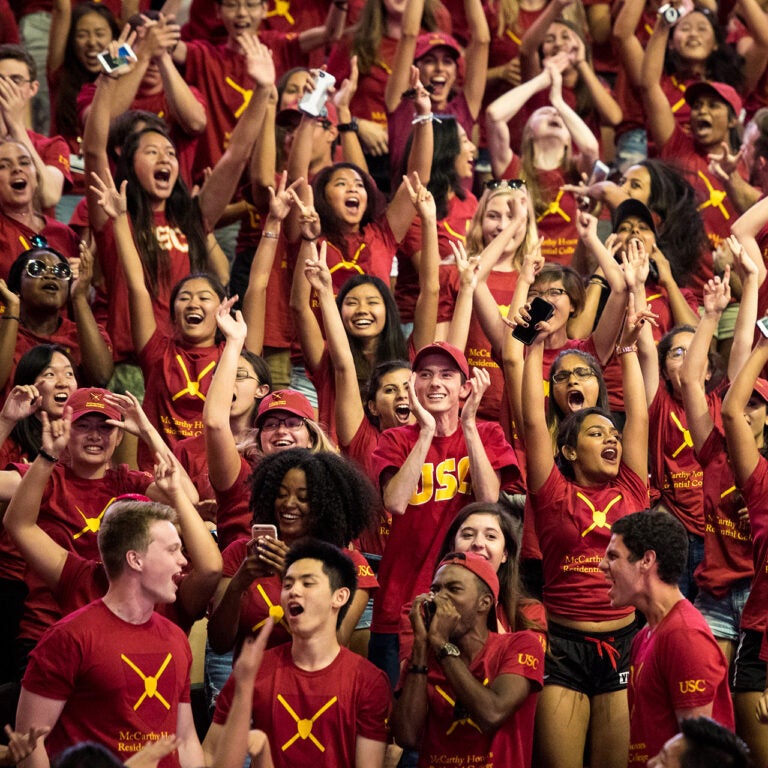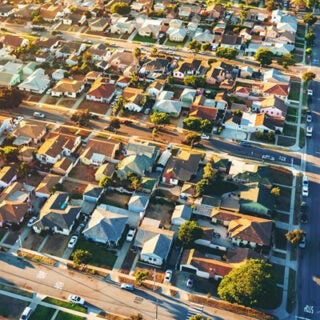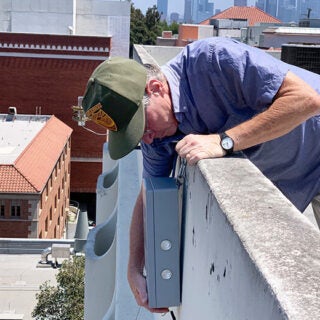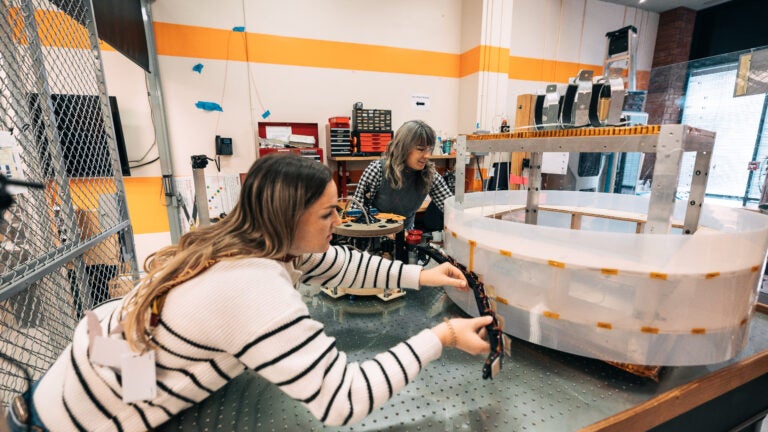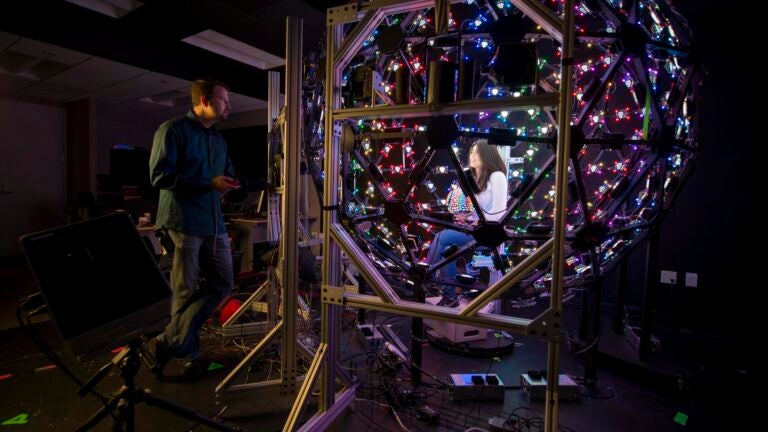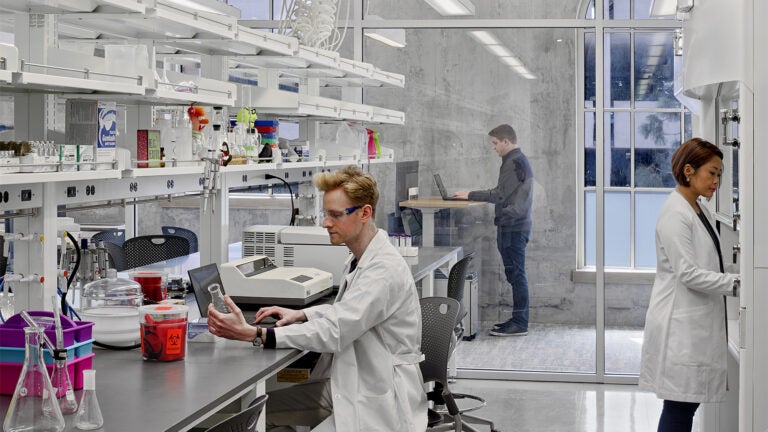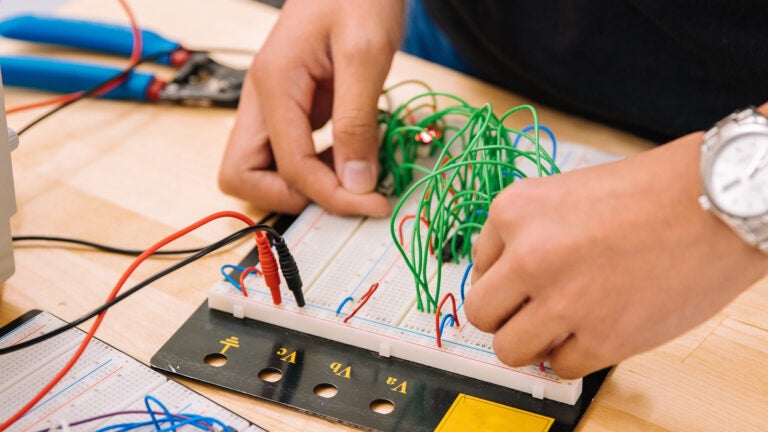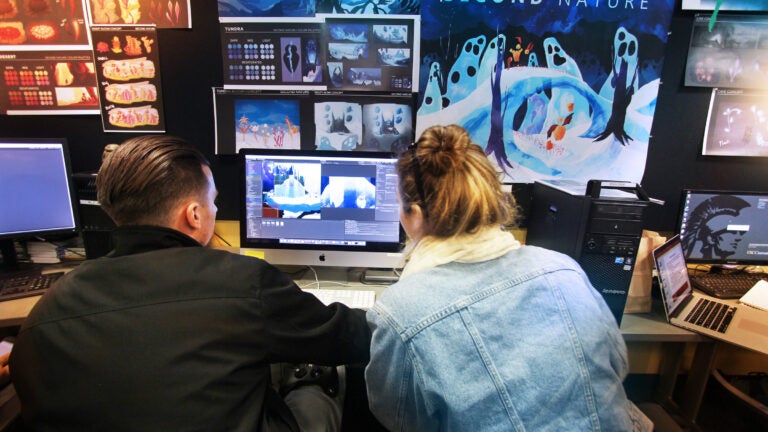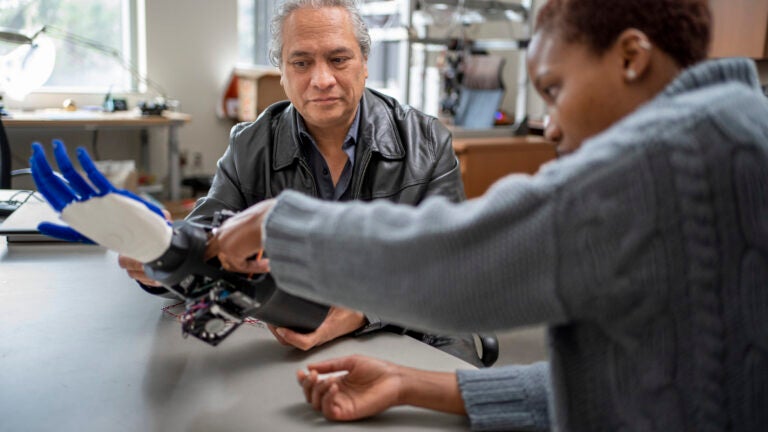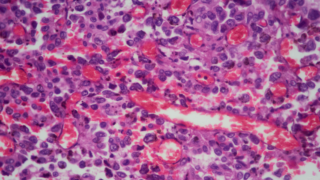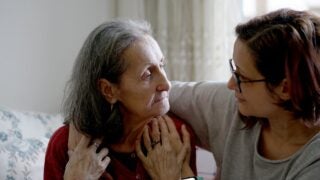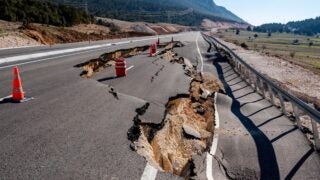Inventing Solutions
Our world no longer fits into neat little buckets. Today’s issues dismantle traditional organizational structures and require interdisciplinary approaches. Our community of collaborators work across disciplines to apply new approaches to solving problems. We bring unconventional partners together — scientists, storytellers, visual artists — in an effort to inspire one another and find solutions in the space in between disciplines.
An Urban Mindset
Tracking food and nutrition security in Los Angeles County
USC Urban Trees Initiative
Measuring carbon dioxide and pollutant levels in Los Angeles
Having a critical mass of faculty across our different campuses, bringing in our different expertise areas, is really about ameliorating the risk that is associated with drug development. The other aspect of critical mass is that we also want to develop a culture of innovation and entrepreneurship.
Steve Kay, University and Provost Professor, Director of the USC Michelson Center for Convergent Bioscience
Interdisciplinary Answers
USC Stevens Center for Innovation
It’s one thing to discover; it’s another to move it to the marketplace where commercialization can maximize positive impact. USC’s technology licensing office plays a key role in the innovation ecosystem across Southern California.
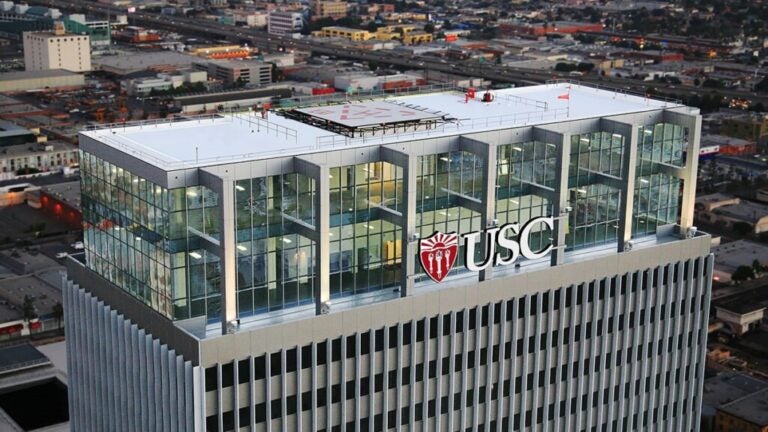

Meeting Today’s Challenges, Head-on
The world is facing complex issues that often have conflicting factors: empty buildings amid housing shortages; climate-fighting technologies and red tape; clinical pain management and opioid addictions. Finding solutions requires new approaches and relentless determination.
Academic Rigor, Visionary Approaches
USC scholars and researchers rise to meet varied modern problems with groundbreaking innovations, cross-disciplinary collaboration and creative solutions — transforming how we tackle today’s most critical issues.
How AI and genomics are personalizing cancer treatment
USC-led study uses AI to analyze genetic mutations and improve cancer treatment strategies
Air pollution exposure during childhood linked directly to adult bronchitis symptoms
The Keck School of Medicine of USC study underscores the need to dramatically reduce air pollution.
Key USC researchers’ dementia cost model aims to help patients, families
Knowing the actual costs of dementia could help families plan their budgets and support needs, inform treatment and caregiving options, and shape health care policy.
Optimizing earthquake data flow allows scientific research on ‘The Big One’
The USC-based Statewide California Earthquake Center developed CyberShake, a computational platform that simulates hundreds of thousands of earthquakes to calculate regional seismic hazard models.
Direct-to-patient educational material helps older adults reduce use of drugs like Valium, Xanax
Study finds that patients who received brochures about risks, alternatives and tapering recommendations were more likely to successfully quit taking benzodiazepine medications.
Few hospitals are promoting potentially predatory medical payment products
A recent USC study finds concerns about hospitals offering medical payment products may be overblown.
